Hope Rising: Oando Foundation Commemorates Day of the African Child
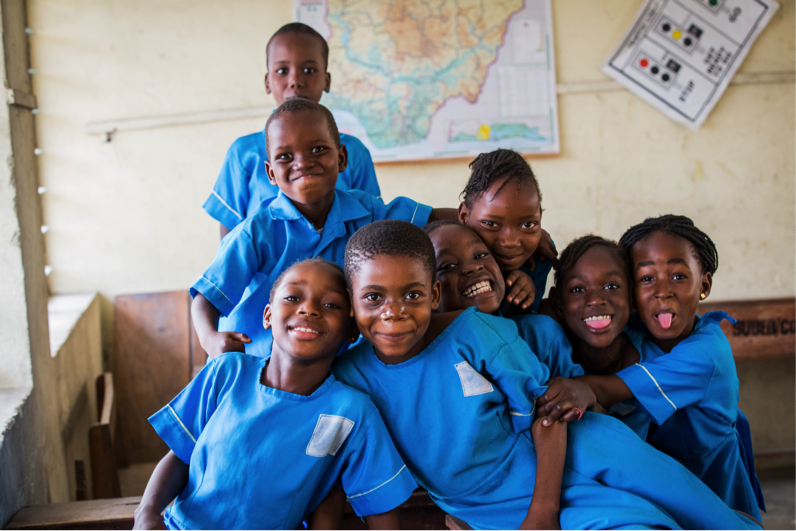
Children in Nigeria take a break from their studies to pose for the camera.
Today, the African continent commemorates the Day of the African Child under the theme “Accelerating protection, empowerment and equal opportunities for children in Africa by 2030″. We honor the memories of the hundreds of students killed during the Soweto Uprising in South Africa in 1976, and recognize the courage of the students who marched for their right to an education.
This day also presents an opportunity for us to raise awareness about the ongoing need to improve access to and the quality of education for children living across Africa, including here in Nigeria. It is a need that still very much exists today.
Implementation gaps still exist on children’s rights in Africa, particularly the realization of socioeconomic rights through good governance, targeted policies and adequate provision of the required services. Empowerment and equal opportunity requires targeting all social and economic groups to ensure that no child is left behind, prioritizing the rights and needs of the poorest and most marginalized.
Of the 61 million primary school age children currently out of school around the world, 8.7 million are from Nigeria. Reasons why children go uneducated are diverse – parents’ inability to afford school fees, long distances to school, early marriage that keep girls from the classroom, inadequate infrastructure and materials to support learners’ needs, and a lack of qualified teachers, amongst many others.
In addition, gender disparity continues to exist – from access to enrolment and school completion rates to the quality of learning.
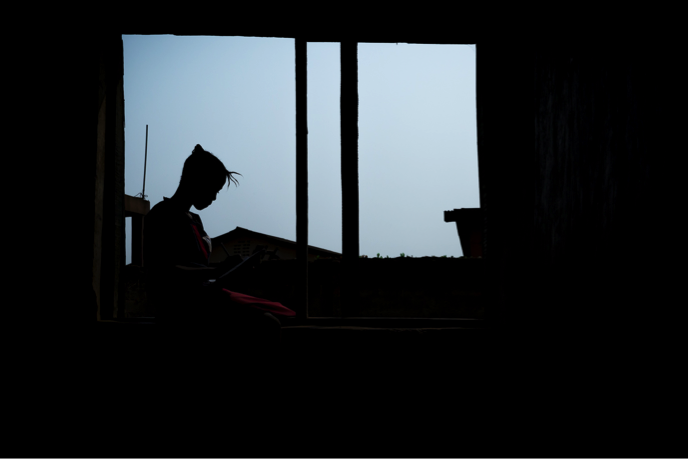
Through our signature project – the Adopt-A-School Initiative (AASI), Oando Foundation has adopted 80 schools across Nigeria to address these challenges; contributing towards the achievement of Sustainable Development Goals (SDGs) 4, 5, 6 and 17 and leveraging our resources, best practices and cross-cutting solutions that have delivered similar results we aim to achieve.
Our Adopt-A-School programme utilizes an integrated school development approach. It comprises Infrastructural Development (including Water and Sanitation), Teacher Capacity Development, Information and Communications Technology (ICT) Education, Early Childcare Development, awarding of scholarships, Stakeholder/Community capacity building and other projects geared towards improving access to quality education and transforming the lives of children in communities across Nigeria. Over 61,000 children have directly benefitted from our interventions to date.
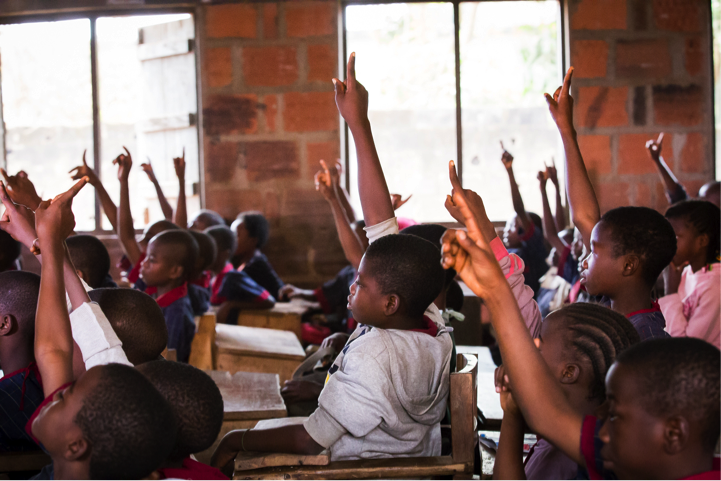
A classroom adopted through our AASI programme in Ogun state.
Increasingly, we are focusing on active mobilization and support for out-of- school children, especially the internally displaced who are young victims of the Boko Haram insurgency in Northern Nigeria – enrolling over 16,000 children in 2016. Our strategic alliances with key government institutions, civil society organizations, technical and funding partners provide a platform for continued support and advocacy on behalf of children in schools and communities where we work.
By 2030, 1 in 6 youths globally will be an African. Poor implementation of the SDGs portend dire consequences, not for the continent alone, but the world at large. Oando Foundation therefore calls on Governments to take proactive measures toward providing inclusive and equitable access to quality and equal education.
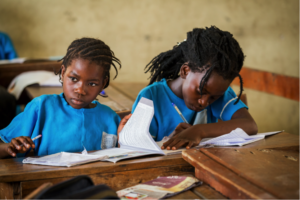
Two girls hard at work in their studies.
The strides we have made since 1976 in expanding access to education is worthy of celebrating on this day. However, we should not rest on past achievements; we must recognize how much further we need to go and push for continued change.
There must be a concerted effort among key stakeholders to increase global financing of education and accountability, strengthening coherence and alignment with the provisions of the Child Rights Act (2003), and to prevent inequitable outcomes. Collectively, we must promote the implementation of child-friendly policies, practices and programmes that do not in any way undermine the equality of children, particularly the girl-child and other vulnerable groups.
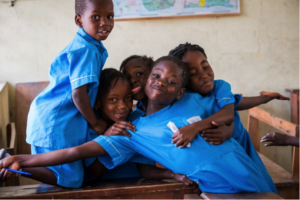
One final pose for the camera.
Based in Lagos, Nigeria, Tonia Uduimoh is the Programme Coordinator for Oando Foundation. The foundation has been a GBC-Ed member since 2013.
All photos courtesy of the Oando Foundation.
